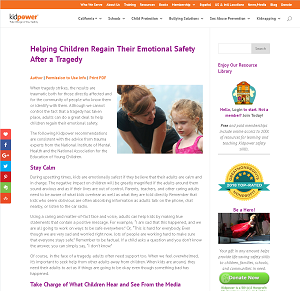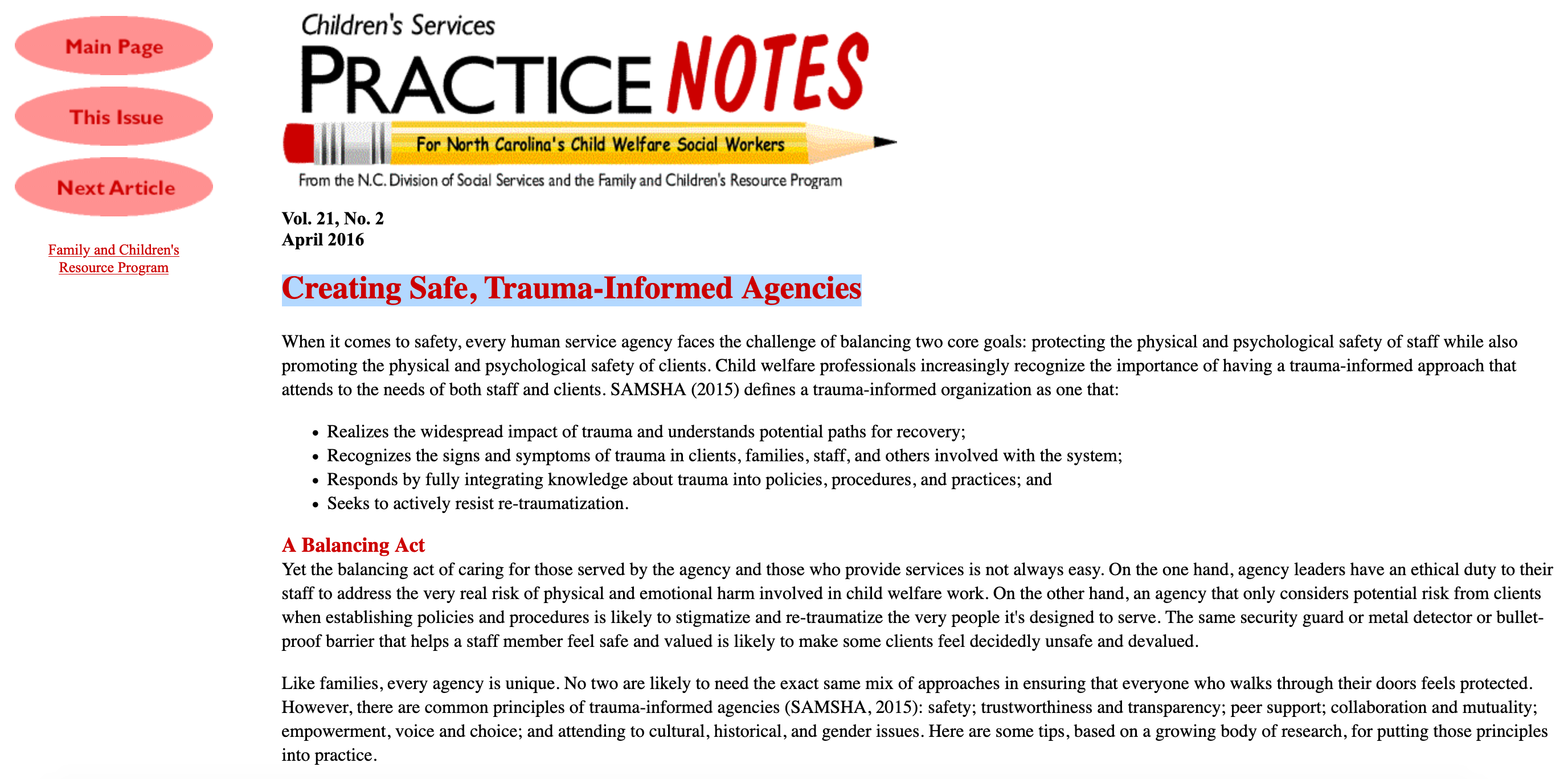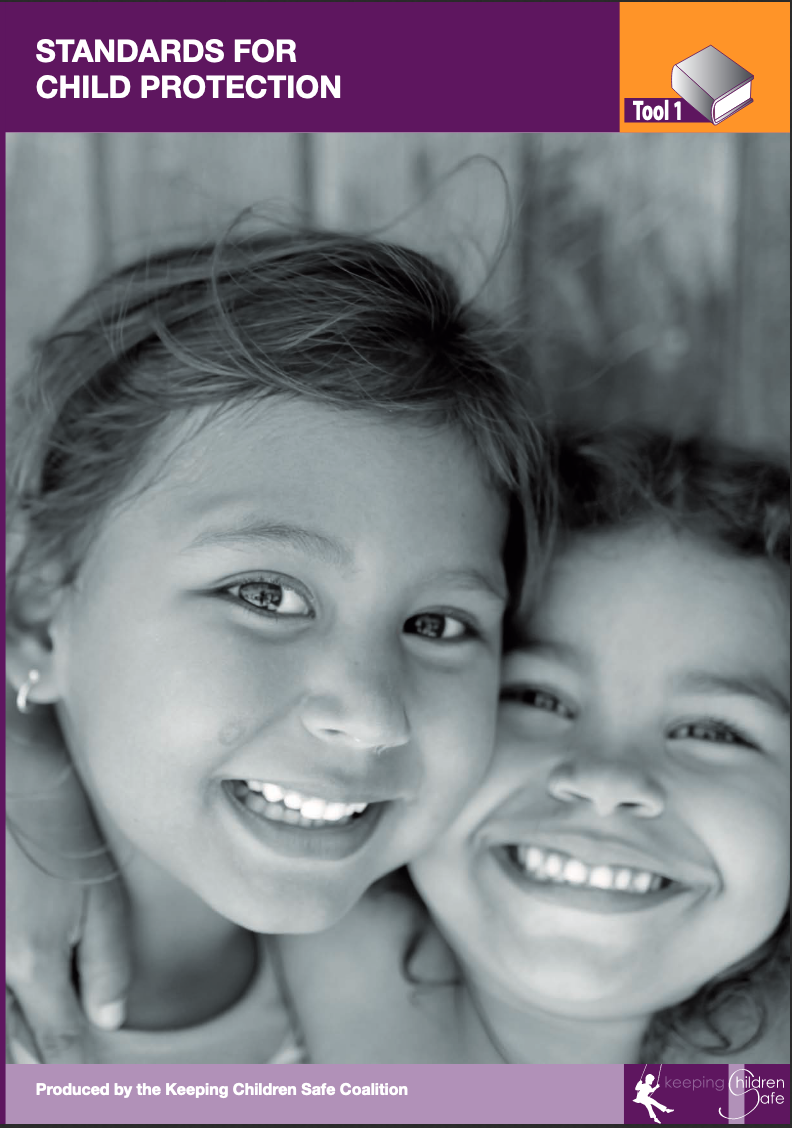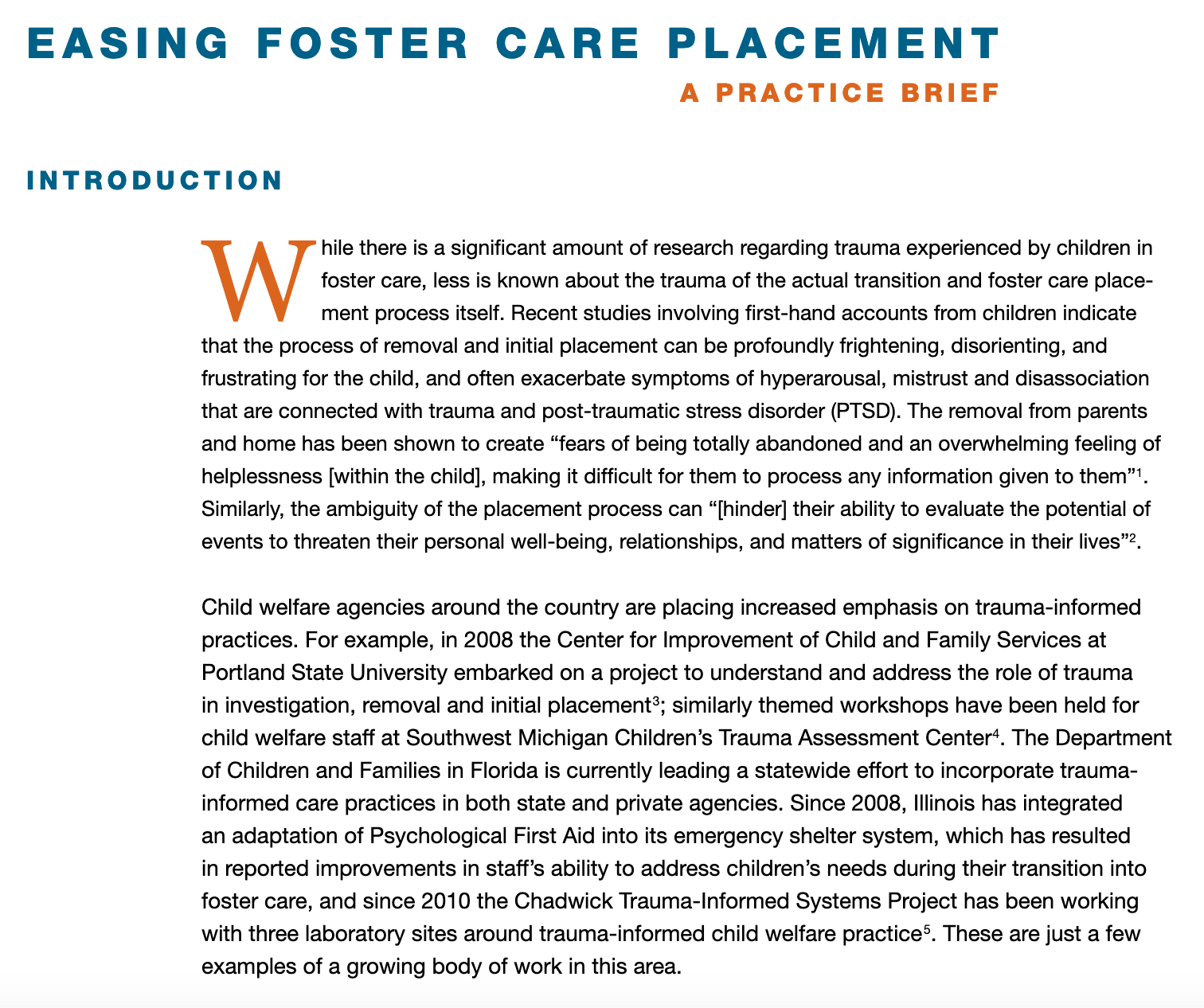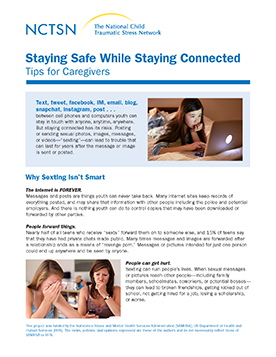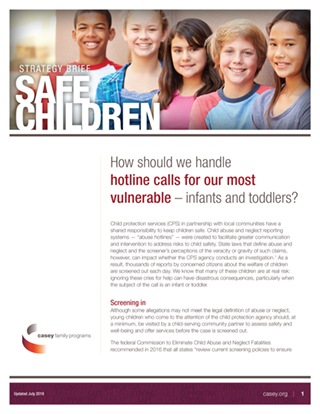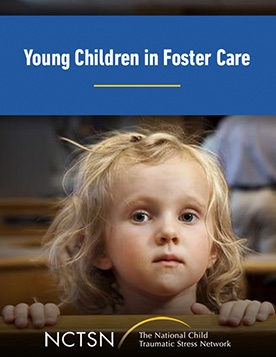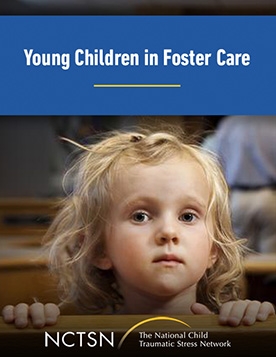-
Helping Children Regain Their Emotional Safety After a Tragedy
Physical & Psychological Safety
KidpowerGeneralThis website provides recommendations for those interacting with children following a traumatic event.
-
Being Safe v. Feeling Safe
Physical & Psychological Safety
Fostering Perspectives, vol 17 No. 2 May 2013GeneralThis article provides basic information on psychological safety aimed toward resource parents.
-
Tips for Enhancing Emotional Safety
Physical & Psychological Safety
National Center on Domestic Violence, Trauma & Mental HealthGeneralThis tip sheet provides information on how to enhance emotional safety in general and in domestic violence programs.
-
Creating a Culture of Safety: A Guide for Health Centers
Physical & Psychological Safety
National Health Care for the Homeless CouncilBehavioral HealthThis document discusses the importance of creating safe spaces for vulnerable populations, and provides concrete examples for creating psychical and emotional safety
-
Creating Safe, Trauma-Informed Agencies
Physical & Psychological Safety
Children's Services Practice Notes for North Carolina’s Child Welfare Social WorkersChild WelfareTips on how to create Trauma-Informed Child Welfare agency specifically focusing on creating physical and psychological safety (Volume 21, Number 2, April 2016)
-
Keeping Children Safe: A Toolkit for Child Protection
Physical & Psychological Safety
Save the Children's Keeping Children Safe CoalitionGeneralA toolkit that provides strategies and tools to create safety for children
-
Easing Foster Care Placement: A Practice Brief
Physical & Psychological Safety
ACS-NYU Children's Trauma InstituteChild WelfareThis practice brief provides information on how to make foster placement more psychologically safe for children. Includes information on what can be done to reduce the trauma experienced by children coming into foster care.
-
Staying Safe While Staying Connected- Tips for Caregivers
Child & Youth Well-Being & Resilience
National Child Traumatic Stress Network (NCTSN)CaregiversThis tip sheet provides information for caregivers on safe internet behavior for youth.
-
How Should We Handle Hotline Calls for our Most Vulnerable - Infants & Toddlers?
Physical & Psychological Safety
Casey Family ProgramsChild WelfareInformation on how to respond to hotline calls about infants and toddlers to create safety.
-
Optimizing Visitation for Young Traumatized Children and their Parents & Caregivers
Physical & Psychological Safety
The National Child Traumatic Stress Network (NCTSN)Child WelfareA webinar on ways to make visitation psychologically safe for young children who have experienced trauma. Accessing this resource requires a free registration at https://learn.nctsn.org/. Once you have a registration and are signed on you can either use the link on this page or search the name of the resource on the NCTSN Learning Center website to access this resource.
-
Optimizing Visitation for Young Traumatized Children and their Parents & Caregivers
Physical & Psychological Safety
The National Child Traumatic Stress Network (NCTSN)Child WelfareA webinar on ways to make visitation psychologically safe for young children who have experienced trauma. Accessing this resource requires a free registration at https://learn.nctsn.org/. Once you have a registration and are signed on you can either use the link on this page or search the name of the resource on the NCTSN Learning Center website to access this resource.
-
Optimizing Visitation for Young Traumatized Children and their Parents & Caregivers
Physical & Psychological Safety
The National Child Traumatic Stress Network (NCTSN)Child WelfareA webinar on ways to make visitation psychologically safe for young children who have experienced trauma. Accessing this resource requires a free registration at https://learn.nctsn.org/. Once you have a registration and are signed on you can either use the link on this page or search the name of the resource on the NCTSN Learning Center website to access this resource.
-
Optimizing Visitation for Young Traumatized Children and their Parents & Caregivers
Physical & Psychological Safety
The National Child Traumatic Stress Network (NCTSN)Child WelfareA webinar on ways to make visitation psychologically safe for young children who have experienced trauma. Accessing this resource requires a free registration at https://learn.nctsn.org/. Once you have a registration and are signed on you can either use the link on this page or search the name of the resource on the NCTSN Learning Center website to access this resource.
-
Optimizing Visitation for Young Traumatized Children and their Parents & Caregivers
Physical & Psychological Safety
The National Child Traumatic Stress Network (NCTSN)Child WelfareA webinar on ways to make visitation psychologically safe for young children who have experienced trauma. Accessing this resource requires a free registration at https://learn.nctsn.org/. Once you have a registration and are signed on you can either use the link on this page or search the name of the resource on the NCTSN Learning Center website to access this resource.
-
Addressing Transition Issues for Young Foster Children
Physical & Psychological Safety
The National Traumatic Stress Network (NCTSN)Child WelfareWebinar that provides information on transition issues as well as ways to make transitions less traumatizing for young children. Accessing this resource requires a free registration at https://learn.nctsn.org/. Once you have a registration and are signed on you can either use the link on this page or search the name of the resource on the NCTSN Learning Center website to access this resource.
-
Optimizing Visitation for Young Traumatized Children and their Parents & Caregivers
Physical & Psychological Safety
The National Child Traumatic Stress Network (NCTSN)Child WelfareA webinar on ways to make visitation psychologically safe for young children who have experienced trauma. Accessing this resource requires a free registration at https://learn.nctsn.org/. Once you have a registration and are signed on you can either use the link on this page or search the name of the resource on the NCTSN Learning Center website to access this resource.
-
Addressing Transition Issues for Young Foster Children
Physical & Psychological Safety
The National Traumatic Stress Network (NCTSN)Child WelfareWebinar that provides information on transition issues as well as ways to make transitions less traumatizing for young children. Accessing this resource requires a free registration at https://learn.nctsn.org/. Once you have a registration and are signed on you can either use the link on this page or search the name of the resource on the NCTSN Learning Center website to access this resource.
